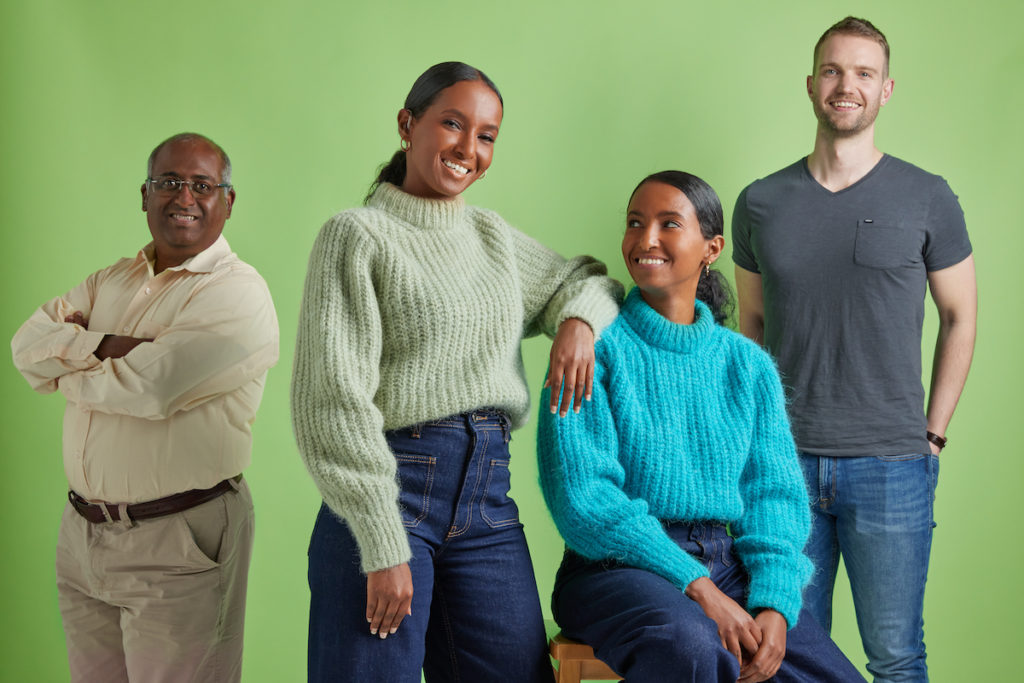A statement from our Board of Trustees

RNID exists to make life more inclusive for 18 million people who are deaf, have hearing loss or tinnitus – so inclusion is at the heart of what RNID stands for. We are determined to be inclusive in who we are, how we behave, how we communicate and in the impact we have on people’s lives.
From our Board of Trustees down, every level of our organisation is committed to working to make RNID a place that prioritises and values Equality, diversity and inclusion (EDI).
Our EDI approach
Every organisation – business, government or charity – has an approach for EDI, and we want an EDI approach that is right for RNID, that is fully aligned to our strategy and specific to our purpose and our organisation. Our approach is therefore guided by two principles:
- Demonstrate our values of being connected, passionate, curious and insightful, so that EDI is an intrinsic part of our culture.
- Be thoughtful and proportionate, so that given our size and resources, we prioritise the things that will make the biggest difference to RNID’s people and culture, and to the 18 million people in the communities we want to reach.
We have divided the breadth of RNID’s EDI approach into three dimensions: our people and culture, reaching our communities, and delivering our impact.
Our people and culture
| Why is EDI important for this aspect of RNID? | Our people are our biggest asset, and diverse perspectives and experiences add strength and perspective to our work. Who we are and how we work together is the biggest driver of how well we deliver our strategy to change the lives of millions. We want RNID to be a great employer for all of our people, and to be seen in the recruitment market as a great and aspirational place to work. |
| What is our EDI aspiration for this aspect of RNID? | We want our culture to be fully inclusive of everyone, and we want all RNID staff and volunteers have a strong sense of belonging. We want our people – both staff and volunteers – to reflect our communities. All aspects of diversity are important to us. To give us focus, we have identified three priority areas which we believe are the most critical to RNID in helping us achieve our purpose. These are: lived experience (of deafness, hearing loss and tinnitus); ethnic diversity; and UK-wide representation. That means that we will give particular focus to these characteristics amongst our people. |
Reaching our communities
| Why is EDI important for this aspect of RNID? | We must increase our reach to millions of people. We will only do this if we are relatable and relevant to their lives. We need an engagement approach that reflects the breadth of the communities we want to reach. |
| What is our EDI aspiration for this aspect of RNID? | We want to reach everyone in the UK who is deaf, has hearing loss or tinnitus – that means including and reflecting the experience of the diversity of age, gender, ethnicity, geography and other characteristics. |
Delivering our impact
| Why is EDI important for this aspect of RNID? | We want to deliver impact at scale. This means understanding the priorities of many different groups and designing our strategic programmes so that they are relevant to all of them. We are ambitious to make a positive impact on the lives of all these groups, not just those that are easiest to reach or whose needs we best understand today. |
| What is our EDI aspiration for this aspect of RNID? | We want to make a positive impact on the lives of everyone in the UK who is deaf, has hearing loss or tinnitus – that means including and reflecting the experience of the diversity of age, gender, ethnicity, geography and other characteristics. |